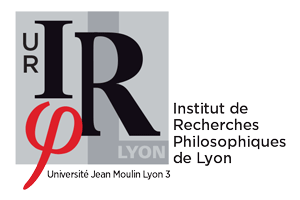-
Partager cette page
- Philosophie,
- Recherche,
- Santé,
International philosophical symposium | Health, Ability and Well-being

International symposium organized on November 18 and 19, 2024 by Jean Moulin Lyon 3 University, more particularly the Institute of Philosophical Research of Lyon (IRPhiL), in collaboration with Clermont Auvergne University and the University of Lausanne.
Argument
Health is a debated concept, particularly regarding its definition and measurement, with questions about whether it can be defined purely biologically or negatively (as the absence of disease), a view known as ”naturalism”. Christopher Boorse in the 1970s supported this through a biostatistical approach, later refined by philosophers like Daniel Hausman. On the other hand, normativist thinkers like Lennart Nordenfelt developed a holistic view that links health to well-being, emphasizing a positive assessment of one's overall condition. This view, amended by others such as Per Anders Tengland, seems more reflective of how we use and value the concept of health.The challenge is to avoid conflating health with well-being, as seen in the World Health Organization’s broad definition. The holistic approach places the concept of ability at its core, which offers advantages for understanding prevention, health promotion, rehabilitation, and even health justice (e.g., Sridhar Venkatapuram). However, questions arise: Is an ability-based definition applicable to mental health? Does it account for the social and environmental dimensions of health? Furthermore, while there is consensus that health promotes well-being, the precise relationship between the two is unclear. Is health a cause or a part of well-being? Should we consider health as a form of well-being? And how can we define or measure well-being itself?
Programm
- November 18th
-
14h-18h: Health, ability, function(Chair: Brenda Bogaert)
14h Lennart Nordenfelt, Marie Cederschiöld University, Department of Health Care Sciences- The concepts of health and well-being revisited
-
This paper contains a presentation and defence of my analysis of health, initially proposed in Nordenfelt 1995 and 2000. Crucial concepts in this analysis are ability, vital goal and happiness. Roughly, the healthy person, in my interpretation, is one who is able to realise his or her vital goals and thereby reach a state of minimal happiness.
My presentation here will focus on such elements in the analysis as are controversial or are easily misunderstood. Criticisms or alternative proposals, by Varga, Venkatapuram, Tengland and Boissard, are put under scrutiny. Somogy Varga (2023) has developed a theory of health which, like my own, is based on the concept of ability. Instead of vital goals he introduces the notion of autonomy as crucial in his health analysis. I discuss and reject this proposal.
I specifically also consider the general idea of identifying health with having a set of basic capabilities. This proposal has been advocated, although in sligtly different versions, by Sridhar Venkatapuram (2012) and Per-Anders Tengland (2016). I raise some arguments against this proposal.
Special attention will here also be given to the concepts of vital goal and happiness. The relation between the subject’s intentions and his or her vital goals is scrutinised. Likewise, I investigate the connection between the concepts of happiness and wellbeing. In both these respects I relate myself to Elodie Boissard’s (2023) discussion and proposals.
15h15 Elodie Boissard, Université Jean Moulin Lyon 3- Disability and compulsion in depression
-
What makes depression a mental disorder? This question can be raised since clinical criteria of depression are discussed as failing to distinguish normal sadness and depression. This is because these criteria are polythetic so that some depressive clinical pictures can have symptoms that are identical to manifestations of normal sadness. Then, the diagnosis is based on clinical considerations, namely the duration of the symptoms, the intensity of the suffering and the impairment involved in the condition. However, opponents to these criteria accuse them of leading to the medicalization of normal suffering. A more promising approach could then be to specify the pathological character of depression not in terms or suffering but rather in terms of disability.
This choice is central to Nordenfelt’s theory of health and illness, where an ill-health state is a mental or bodily state depriving the person of the second-order ability to realize her vital goals and thereby achieving minimal long-term happiness. Thus, I will discuss how this theory can be applied to depression. Nordenfelt extended his theory to mental illnesses or disorders by arguing that these conditions involve a mental element that is compelling in regard to abilities of rational action.
Firstly, I will rely on cognitive models of depression to show that this condition involves reduced abilities to regulate one’s negative emotions and cognitions and to perform goal-directed actions because of some cognitive deficits. Secondly, I will argue that these deficits entail a compelling character of the depressed mood as well as of depressive beliefs that are caused by poorly regulated negative emotions and cognitions. Thirdly, I will show that this compelling overall mental state can explain the inability of the depressed person to mobilize her action abilities in order to realize her vital goals. Finally, I will discuss the advantages and limits of this application of Nordenfelt’s theory to depression.
16h15 Break
16h30 Anne-Marie Gagné-Julien, Université McGill, Département d'équité, d'éthique et de politique, Centre de recherche en éthique, Chaire de recherche du Canada en éthique féministe- A value-laden theory of function for medicine
-
The concept of “biological function” has been a topic of interest for philosophers for more than half a century. As Wouters (2005) argues, one of the central issues in this debate has been that of normativity. That is, when attributing a function to an organ, one is not only describing what this organ does, but also prescribing what it should be doing. One theory of function that was dismissed early on in this context is the causal role theory (CR) developed by Robert Cummins (1975, 1983). The inability of CR to respond satisfactorily to the normativity desiderata of a theory of function have in most part motivated its rejection in philosophy of biology, medicine and psychiatry. In this paper, I will argue that what the CR critics have shown is that values play a crucial role in functional language, not that CR should be rejected. This defence of CR will be made possible by building on Carl Craver's perspectivist approach to function, complemented with some elements of the “values in science approach” imported from philosophy of science. Under this framework, it will be possible to constrain functional attributions within a CR framework, and therefore to provide a value-laden concept of function which better fits the use of functional language in medicine.
17h30 William Addey, Laboratoire logique de l'agir, Université de Franche-Comté, Besançon- How many healths in One Health?
-
One Health is defined as a transdisciplinary approach to a balanced action for the health of humans, animals, plants and environments, but questions may arise if it is the same concept of health used all around. When interviewed about their definitions of health, the scientists we asked nearly always pointed towards the WHO definition of 1948. We show that breeding and conservation use a naturalistic health definition to promote standards for animal lives and a patrimonial view for conserving biodiversity while ecosystemic services and welfare use a more functional and capacitary approach of health. We therefore should conclude that systemic action promoted by One Health mix plural theories of health. But, as medical, animal and environmental professionals work together, we also observe that their metrics get braided which then favors the emergence of new and more relational health theories.
- November 19th
-
9h-12h30: Health beyond healthcare(Chair: Christophe Gauld)
9h Per-Anders Tengland, Malmö University- What is empowerment in the context of health promotion and medicine?
-
The context for this talk is primarily health promotion. I will start by discussing the goals for health promotion (and to some extent medicine). Health is the obvious goal, but only if it is quality-of-life related. Moreover, health can seldom be directly achieved. Two possible instrumental goals identified are behavior change and empowerment. It will be argued that empowerment is the superior one, and its two meanings (as a goal/state and as a process) are elaborated on. Several factors determine someone’s degree of empowerment (as a goal/state): health, self-esteem and self-confidence, knowledge, skills, autonomy, and opportunities. A brief presentation of health will be given; it is pluralistic – first, in differentiating between fundamental and manifest health, and second, in dividing manifest health into ability and “subjective well-being.” The difference between this theory and that of Lennart Nordenfelt will be high-lighted.
Since empowerment is defined in relation to quality of life (well-being), an idea of what a theory of quality of life could look like will be briefly presented. Moreover, empowerment is an alternative to Amartya Sen’s and Martha Nussbaum’s capabilities theory, and a short comparison will be made.
I will end the talk with a comparison between health promotion and medicine, in terms of which of the previously presented empowering factors they can be expected to contribute to.
10h15 Edouard Leaune, Université Lyon 1, Hospices Civils de Lyon, Le Vinatier/Laboratoire RESHAPE – INSERM U1290- Ability, capability and health justice: addressing the social determinants of health
-
In light of the necessity to contemplate the social dimension of health, a number of philosophers, including Norman Daniels and Sridhar Venkatapuram, have put forth novel frameworks of "health justice" that define health in terms of social justice. In his most recent work, Venkatapuram put forth a novel definition of health, one that was informed by a critique of Lennart Nordenfelt's definition of health. Venkatapuram extends the capabilities approach, as developed by Amartya Sen and Martha Nussbaum, to the domain of health. This allows him to formulate an interdisciplinary argument that debates social justice and considers health as a "meta-capability." Nevertheless, several authors, including Lennart Nordenfelt, have proposed a critique of Venkatapuram's approach. They argue that the inclusion of the social environment in the definition of health may lead to the possibility of considering living in poor conditions as a state of disease.
In light of a critical examination of the approaches put forth by Daniels and Venkatapuram, we have identified five fundamental principles that encompass epistemological, epidemiological, political, empirical, and theoretical concerns. This list serves as a foundation for a novel framework of health justice. This framework provides a basis for developing a normative philosophy that is socially accountable in matters of health and policy deliberation, while also addressing issues of health justice.
11h15 Break
11h30 Rachel Frenette, Université Paris 1 Panthéon Sorbonne, IHPST- Addiction, rationality and compulsion
-
In this presentation, I argue that addiction cannot correspond fully and correctly to what Lennart Nordenfelt depicts through his theory of mental illness. This is so for two main reasons, which rely on the characterizations of the notions of rationality and compulsion. In short, for Nordenfelt, addicted individuals, for example alcoholics, are mentally ill because they are compelled to act on an irrational want. Their want is irrational because it is self-destructive, and they are said to be compelled because they could not avoid intending to act on this want. I take it that these statements – on the irrationality of addicted individuals’ and on their being compelled – are wrong, or at least not completely true. I do not dispute the fact that addicted individuals are, or can be, mentally ill. Yet I do not think it is a matter of irrationality nor of compulsion on their part. Refuting Nordenfelt’s conception of mental illness applied to addiction suggests that his conception of mental illness is insufficient. Consequently, I propose that defining mental illness must rely on the concept of autonomy and I briefly show how that could be done.
12h30 Lunch
13h45-18h: Health and well-being
(Chair: Mikaël Cozic)
13h45 Daniel M. Hausman, Rutgers University, Institute for Health- Health and Well-Being: Some Complications
-
How are health and well-being connected? Answering that question depends on the answers to two prior questions: “What is health?” and “What is well-being?” I argue there are multiple concepts of health and that the most plausible theoretical conception of health as a matter of the functional efficiency of parts and processes within the body and mind leaves open to empirical investigation whether improvements in health in themselves contribute to well being. In contrast, the concept of health in terms of which both healthcare providers and ordinary people appraise people’s health apparently defines health to be a cause or constituent of well-being.
However, well-being is also ambiguous. One important distinction that has not sufficiently been emphasized in the philosophical literature is between encompassing notions of well-being, whereby everything that is of value to an individual counts as contributing to that individual’s well-being, and component notions of well-being that countenance the existence of individual values that can compete with well-being. On an encompassing view, if health is good for an individual, then by definition it contributes to well-being, and it cannot be good for an individual in any other way than by contributing to that individual’s well-being as a cause or constituent. On a component view, in contrast, the value of health is not necessarily captured by its contribution to well-being. I defend a component view, and I grant that health contributes to well-being, but I maintain that health should not be defined or measured by that contribution.
15h Samuel Lepine, Université Clermont Auvergne, PHIER- How minimal is minimal happiness?
-
Nordenfelt convincingly argued that health implies the ability to pursue vital goals, which are likely to contribute to a state of “minimal happiness”. This state of minimal happiness is characterized as a felt state that may be more or less lasting, and which is likely to result from the satisfaction of our vital goals. In this presentation, I would like to examine this characterization of “minimal happiness” and its relation to health. On the one hand, I’ll argue that this approach runs the risk of being too exclusive, by underestimating the way in which certain illnesses can have a more direct impact on our happiness. To say it roughly, it seems that some illnesses are bad not because they compromise our ability to satisfy our vital goals, but more simply because they compromise our actual happiness. In this sense, happiness is likely to play a more direct role in describing certain states of health (Hausman, 2015). On the other hand, this characterization of happiness is probably more demanding than it sounds, as it is sometimes characterized as a state of flourishing (as in Aristotelian eudaimonism). From this perspective, this approach refers less to happiness than to well-being, and seems to imply an objective theory of well-being analogous to a capability approach of well-being (Venkatapuram, 2013). In this respect, I will consider in more detail the relationship between happiness and well-being from the point of view of health. I hope that this discussion will in turn shed light on the concept of health, or at least some of its aspects.
16h Break
16h15 Antonin Broi, Wuhan University- Can Science Discover the Nature of Well-Being?
-
Over recent decades, various strands of research in social sciences and psychology have coalesced into a science of well-being (Alexandrova 2017). This discipline mostly investigates the causes and consequences of well-being, offering potentially significant insights for policy-making. But can it shed some light on what well-being itself consists in?
This idea has been recently supported by philosophers of science. Drawing on Chang's (2004) case study on temperature, Hersch (2022) interprets the challenge of measuring well-being as a "coordination" problem. He suggests that “our focus should be on scientific progress that is achieved by honing in on a theory of well-being and on a measure of well-being in an iterative process”, thus resulting in potential insights into what well-being really is.
In this talk, I will critically examine this approach. I show that it requires the investigated concept – be it temperature or well-being – to have enough agreed-upon content as well as to be functionally open, in the sense that its content must remain silent on the very nature of the entity it denotes. This latter condition was already discussed by Cornell realists in metaphysics (Boyd 1988). I will argue that the concept of well-being does not satisfy these conditions. In particular, this is because we have intuitions about constituents of well-being, not just causes and effects of well-being, so its content is not functionally open. Interestingly, the concept of health might be a better candidate for Hersch's approach, which suggests a substantial difference between how we should go about investigating well-being and health.
17h15 Roundtable
Vous serez aussi intéressé par
Informations
Amphi Huvelin
15 quai Claude Bernard
69007 Lyon
Organizers
- Elodie Boissard, Élodie Giroux et Mikaël Cozic (Université Jean Moulin Lyon 3)
- Brenda Bogaert (Université de Lausanne)
- Christophe Gauld et Édouard Leaune (Université Claude Bernard Lyon 1)
- Samuel Lepine (Université Clermont-Auvergne)




